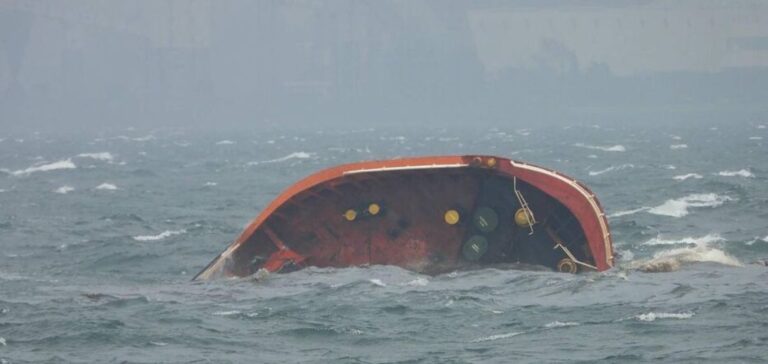The Philippines is facing a serious environmental threat with the sinking of the oil tanker MT Terra Nova.
The delay in siphoning operations, originally scheduled for this Sunday, is raising concerns about the potential ecological impacts on Manila Bay and the surrounding area.
The delay is necessary to allow divers to seal nine faulty valves, minimizing the risk of further oil leaks.
This preventive measure is essential to avoid further pollution.
Impact and Immediate Response
The Philippine-flagged MT Terra Nova sank last Thursday in severe weather conditions, resulting in the death of one crew member.
Sixteen of the seventeen crew members were rescued, but the vessel is now threatening to release 1.4 million liters of oil.
The Philippine Coast Guard, led by Rear Admiral Armando Balilo, has stepped up efforts to contain the oil leak.
Clean-up crews have been deployed to use dispersants, but the oil has already reached the shoreline of Hagonoy, some 40 km northwest of Manila.
History of oil spills in the Philippines
The Philippines has a history of disastrous oil spills.
In 2023, another tanker sank near Mindoro Island, spilling 800,000 liters of industrial fuel oil and causing extensive damage to the local fishing and tourism industries.
In 2006, a similar sinking off Guimaras Island destroyed a marine reserve and ruined local fishing grounds.
The repetition of these incidents underlines the persistent challenges faced by other countries, including Russia.
The current situation with the MT Terra Nova calls for immediate and effective measures to limit environmental damage.
Ecological and economic consequences
The MT Terra Nova oil leak poses a direct threat to marine ecosystems and coastal communities.
The Coast Guard has warned that the complete release of the cargo could cause a major “environmental catastrophe”.
In addition, the suspension of fishing in Manila Bay has been recommended to avoid the consumption of contaminated fish.
The economic repercussions could be severe, affecting the livelihoods of local fishermen and the tourism sector.
Managing this crisis will require coordinated efforts between local authorities, environmental organizations and the international community.
Response and Mitigation Measures
Faced with this crisis, the Philippine authorities need to implement robust preventive measures and strengthen oil spill response capabilities.
The use of advanced technologies for leak plugging and rapid oil siphoning is essential.
International collaboration and the sharing of best practices can also play a crucial role in the effective management of such situations.
Lessons learned from past incidents must guide future actions to avoid the recurrence of such disasters.
Global attention is focused on the Philippines as it navigates through this ecological crisis.
Recovery efforts and prevention strategies will determine the extent of the damage and the long-term impact on the environment and local communities.






















